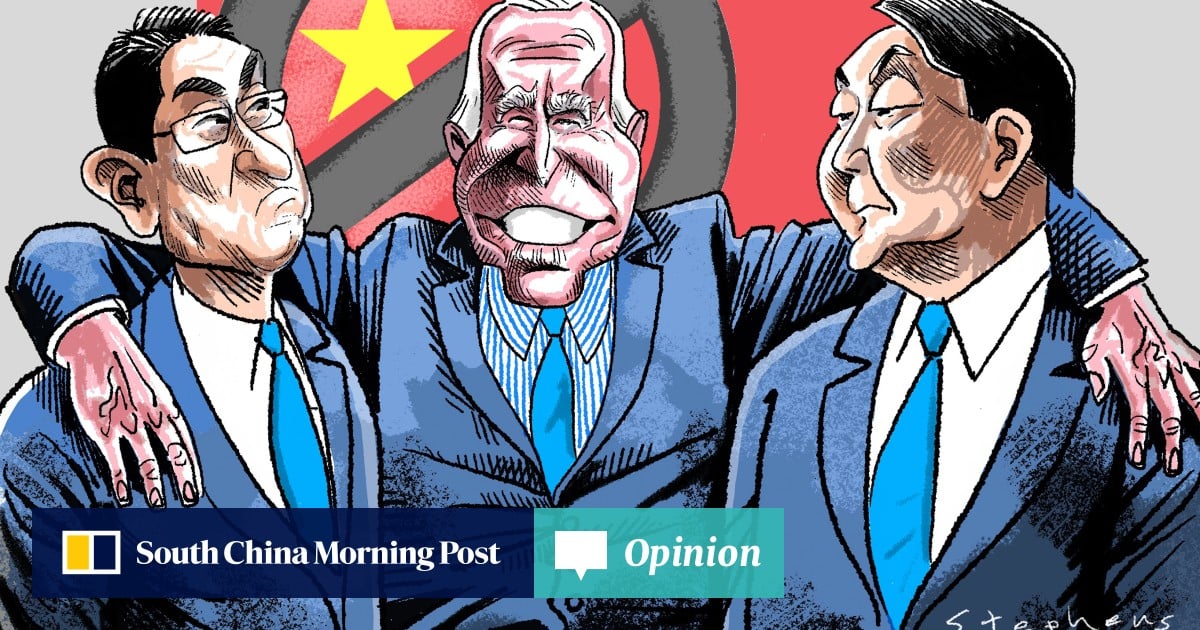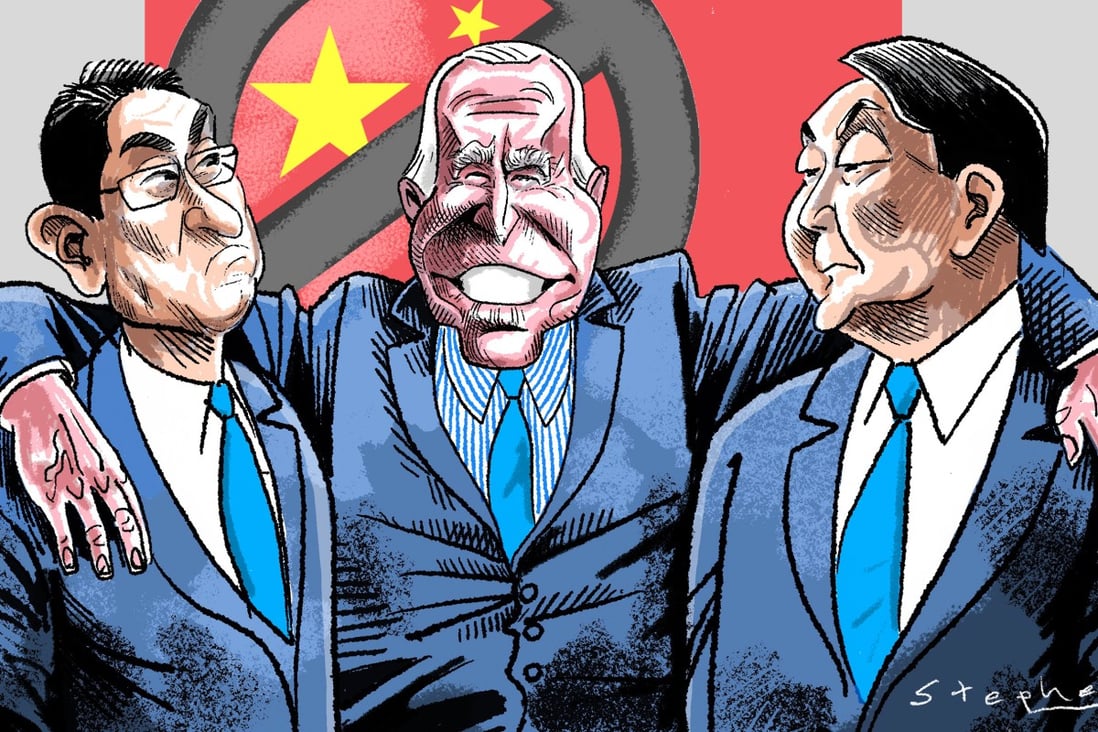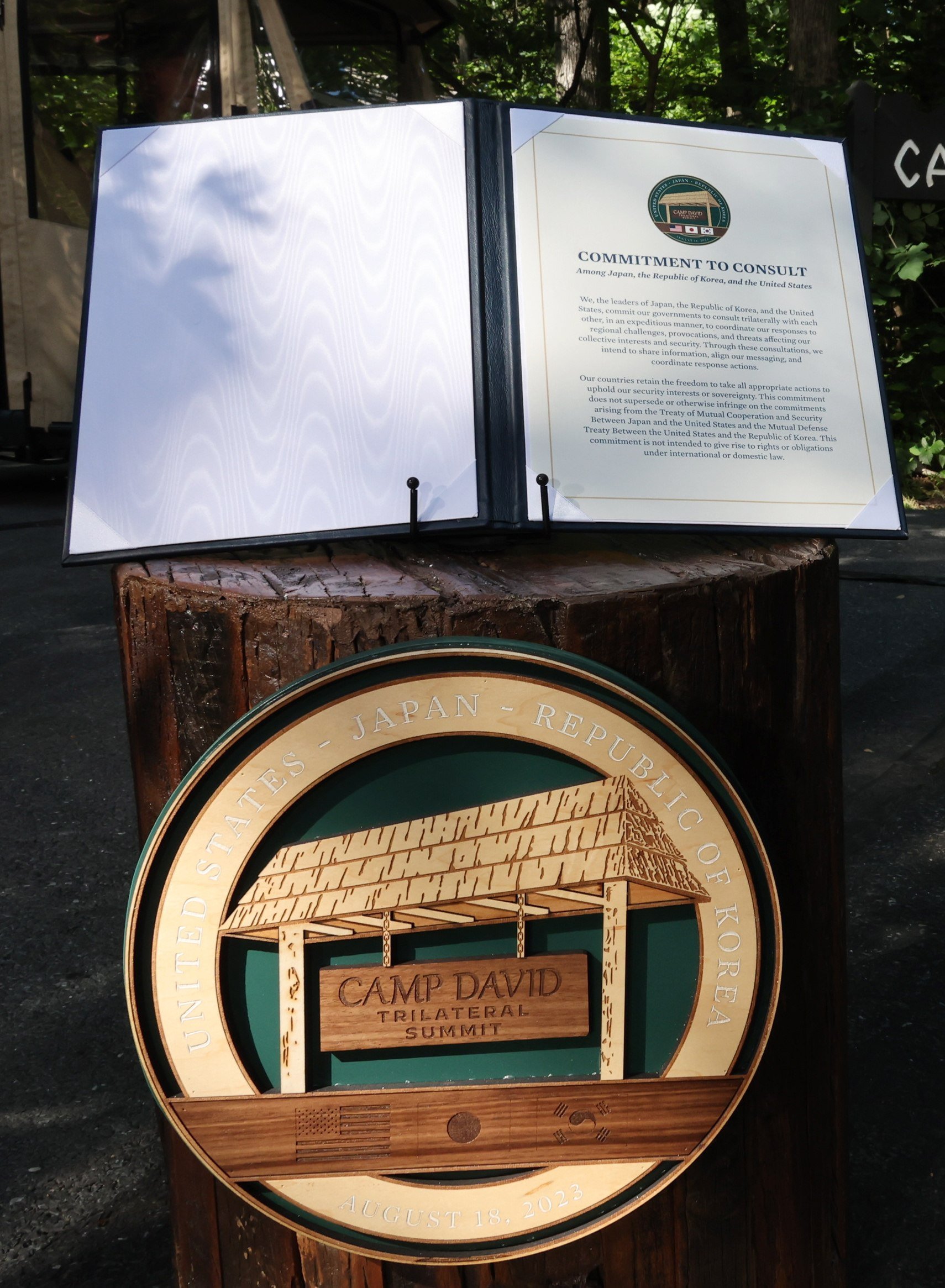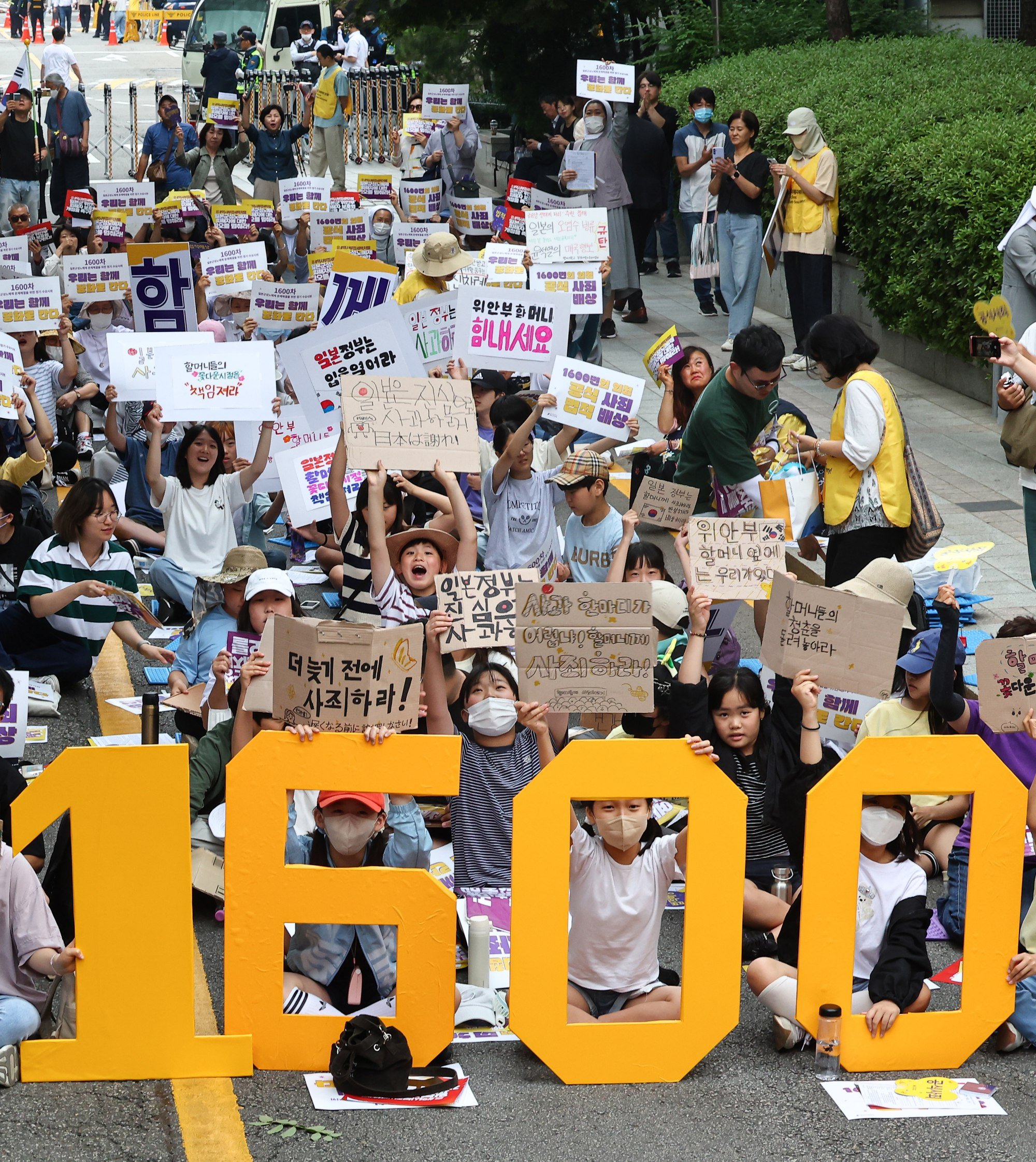
History will work against Japan, South Korea teaming up against China
Bringing Japan and South Korea closer together despite their historical animosity is a diplomatic triumph for Joe Biden, but public support for warmer ties between them is far from certain.

Speaking during his summit at Camp David with Japanese Prime Minister Fumio Kishida and South Korean President Yoon Suk-yeol, US President Joe Biden said of the event: “We have laid in place a long-term structure for a relationship that will last and will have a phenomenal impact not just in Asia but around the world.”
From his point of view, Biden has ample reasons to be enthusiastic about this significant diplomatic undertaking. He has successfully realised two crucial goals. First, he has dispatched a resounding note across the Pacific to China that, without officially declaring a new cold war, the United States is now going full-throttle to counter China in the spheres of diplomacy, economy and technology.
Second, the summit has helped reassure his Democratic Party backers. It shows his global political assertiveness against the confrontational shadow cast by former president Donald Trump, whose popularity remains high despite his many legal troubles.
China has clearly taken centre stage in Biden’s foreign policy strategy. He has committed to reinforcing existing alliances – as seen in the US-led Quadrilateral Security Dialogue and Aukus agreement – while also moving to forge new alliances across the Indo-Pacific.
There is little doubt the Camp David summit was focused on China, yet Biden was careful to say during a joint news conference that the summit’s agenda extended beyond China. Biden said that “this summit was not about China. That was not the purpose of the meeting. But ... China obviously came up.”
That statement appeared to gloss over what has become a gravitational force in US foreign policy in recent times.
At the summit, the US, Japan and South Korea agreed on regular meetings for top leaders and created a new “hotline” for communications between them. They released a set of shared principles that highlighted respect for rules and the United Nations, promising action on human rights and climate concerns.

A document titled “Commitment to Consult Among Japan, the Republic of Korea, and the United States” which South Korean President Yoon Suk-yeol, US President Joe Biden and Japanese Prime Minister Fumio Kishida adopted following a trilateral summit meeting at the Camp David presidential retreat in Maryland on August 18
Security cooperation will be boosted through a series of steps, including crisis consultations and annual military exercises. Deeper collaboration on missile defence was also discussed. An “early warning system” will address disruptions in global supply chains and economic pressures, aiding in preparedness.
The three leaders also emphasised concerns about North Korea’s nuclear threats, pledging to work together to address them. Additionally, they will counter potential arms transfers by North Korea aiding Russia’s invasion of Ukraine.
This kind of joint declaration at the end of the summit was widely expected. However, amid the array of security commitments, the stand-out revelation was the absence of a pact granting Tokyo influence over nuclear strategy.
A groundbreaking shift occurred during Yoon’s April visit to the White House. Biden pledged that South Korea would have a pivotal role in nuclear strategy vis-à-vis North Korea. This commitment prompted Seoul to forsake ambitions for its own nuclear arsenal, something Yoon and his administration had considered pursuing.
Security cooperation will be boosted through a series of steps, including crisis consultations and annual military exercises. Deeper collaboration on missile defence was also discussed. An “early warning system” will address disruptions in global supply chains and economic pressures, aiding in preparedness.
The three leaders also emphasised concerns about North Korea’s nuclear threats, pledging to work together to address them. Additionally, they will counter potential arms transfers by North Korea aiding Russia’s invasion of Ukraine.
This kind of joint declaration at the end of the summit was widely expected. However, amid the array of security commitments, the stand-out revelation was the absence of a pact granting Tokyo influence over nuclear strategy.
A groundbreaking shift occurred during Yoon’s April visit to the White House. Biden pledged that South Korea would have a pivotal role in nuclear strategy vis-à-vis North Korea. This commitment prompted Seoul to forsake ambitions for its own nuclear arsenal, something Yoon and his administration had considered pursuing.
There was discussion of the “Washington Declaration” integrating Japan into the US-South Korea nuclear planning pact, but momentum towards this seems to have waned. Perhaps Seoul is not enthusiastic about Tokyo joining the group.
Orchestrating the meetings with Yoon and Kishida at Camp David marks a significant diplomatic achievement for Biden. Even so, the durability of this detente hinges on their ability to withstand domestic political pressures from both sides. The commitments made at Camp David mark a daring step for Seoul and Tokyo. It is risky given the need to overcome historical animosity rooted in Japan’s colonial rule of Korea.
Ahead of next year’s US presidential election, the White House is seeking to entrench progress made in South Korea-Japan relations by institutionalising routine cooperation. As Biden vies for another term next year, Trump and the opposition Republican Party have raised doubts in many minds about the worth of long-standing military and economic partnerships in the Indo-Pacific.
The rest of this triumvirate also faces looming electoral challenges, with South Korea having legislative polls next year while Japan must hold its next election before the end of October 2025. The delicate reconciliation between these countries could spark contentious debates among their respective voters, amplifying the intricacy of the situation. While Yoon and Kishida appear to be confident about the future of this nascent rapprochement, their respective voters are likely to remain divided over the prospect of warmer relations, adding layers of complexity to the mix.
While the foreign policy rationale behind closer ties might seem sound, how it is received among the South Korean public remains uncertain. How will the business community and voters feel about closer alignment with the US and moving further from China? Will historical grievances against Japan be raised again? How willing the people are to go along with warmer relations will help shape the future of their government’s approach.

Protesters in South Korea hold a regular Wednesday rally, the 1,600th of its kind, near the Japanese Embassy in Seoul on June 14, to call for Japan’s apology and compensation for the victims of the Japanese army’s sexual slavery during World War II, euphemistically called “comfort women”
The economic interdependence between China, Japan and South Korea is also another factor for consideration. Not only is China the primary trade partner for Japan and South Korea, intricate supply chains link numerous Japanese and South Korean sectors with Chinese suppliers and subsidiaries.
Untangling these economic connections will be difficult. While Japan and South Korea are cooperating with the US in curbing chip sales and technology transfers to China’s semiconductor sector, they are also grappling with unease over the potential economic fallout from these measures. Recent evidence of a slowdown in China’s economy also introduces uncertainty as its effects are expected to radiate out to China’s top trading partners.
It is undeniable that Japan and South Korea are gradually moving towards a new form of regional alliance in the face of fierce resistance from China. Unfortunately, this could bode ill for long-term peace and stability in the Indo-Pacific.

